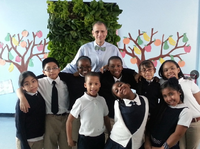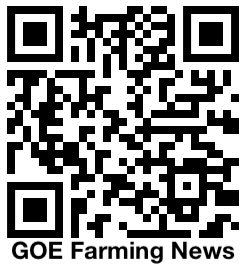
(Excerpted from Upworthy.com)
Many of the people who live in the South Bronx also suffer from something called "food insecurity." Food insecurity means you don't know where your next meal will come from. For people who live in food deserts, this is a fairly common feeling. Most of his kids are homeless. Many are in foster care.
So he and the kids created the Green Bronx Machine, a nonprofit devoted to growing healthy food curriculums and economies locally. It teaches kids how to be healthy and provides them with healthy food options, which in turn helps them focus and perform better in and out of school.
Together, they've created a school curriculum around healthy eating and gardening. The students grow food (30,000 pounds of it to date), and they create sustainable gardens on roofs and in classrooms all over New York (creating jobs for some of the teens in the program). The kids have significantly increased their academic achievement.
And even better? The students get to eat the things they grow and bring food home, too, while learning how to farm and manage food production at the same time.
The bottom line: Teaching kids how to grow things helps them grow. The kids in Steve's class went from a 40% attendance rate to a 93% attendance rate, and they're getting 100% passing rates on New York State Examinations. All the data point toward future health and success for the students and the program.
Garden of Eden is currently working with a school in Seattle whose students have similar backgrounds and situations. We are working with the school to develop an elementary level curriculum in which our "farm" is an integral part of the science curriculum. More on that later.
